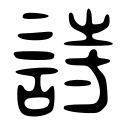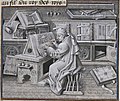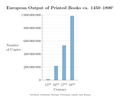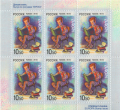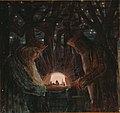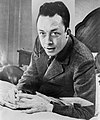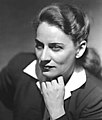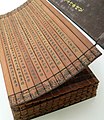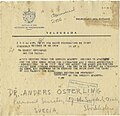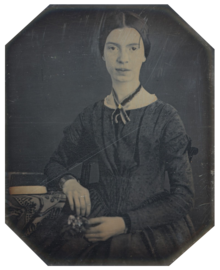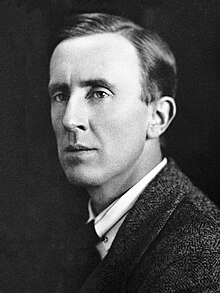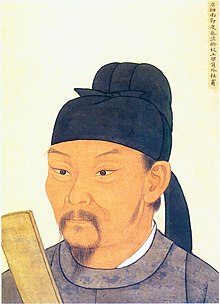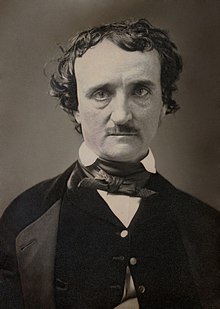Portal:Literature
Introduction

Literature is any collection of written work, but it is also used more narrowly for writings specifically considered to be an art form, especially novels, plays, and poems. It includes both print and digital writing. In recent centuries, the definition has expanded to include oral literature, much of which has been transcribed. Literature is a method of recording, preserving, and transmitting knowledge and entertainment. It can also have a social, psychological, spiritual, or political role.
Literary criticism is one of the oldest academic disciplines, and is concerned with the literary merit or intellectual significance of specific texts. The study of books and other texts as artifacts or traditions is instead encompassed by textual criticism or the history of the book. "Literature", as an art form, is sometimes used synonymously with literary fiction, fiction written with the goal of artistic merit, but can also include works in various non-fiction genres, such as biography, diaries, memoirs, letters, and essays. Within this broader definition, literature includes non-fictional books, articles, or other written information on a particular subject. (Full article...)
General images -
Pattern Recognition is a novel by science fiction writer William Gibson published in 2003. Set in August and September 2002, the story follows Cayce Pollard, a 32-year-old marketing consultant who has a psychological sensitivity to corporate symbols. The action takes place in London, Tokyo, and Moscow as Cayce judges the effectiveness of a proposed corporate symbol and is hired to seek the creators of film clips anonymously posted to the internet.
The novel's central theme involves the examination of the human desire to detect patterns or meaning and the risks of finding patterns in meaningless data. Other themes include methods of interpretation of history, cultural familiarity with brand names, and tensions between art and commercialization.
Pattern Recognition is Gibson's eighth novel and his first one to be set in the contemporary world. Like his previous work, it has been classified as a science fiction and postmodern novel, with the action unfolding along a thriller plot line. Critics approved of the writing but found the plot unoriginal and some of the language distracting. The book peaked at number four on the New York Times Best Seller list, was nominated for the 2003 British Science Fiction Association Award, and was shortlisted for the 2004 Arthur C. Clarke Award and Locus Awards.
Selected excerpt
| “ | Reader, I think proper, before we proceed any farther together, to acquaint thee that I intend to digress, through this whole history, as often as I see occasion, of which I am myself a better judge than any pitiful critic whatever; and here I must desire all those critics to mind their own business, and not to intermeddle with affairs or works which no ways concern them; for till they produce the authority by which they are constituted judges, I shall not plead to their jurisdiction. | ” |
| — Henry Fielding, The History of Tom Jones, a Foundling | ||
More Did you know
- ... that though Amir Hamzah was a Muslim, analyses of his poem "Padamu Jua" have found Christian influences?
- ... that Claude Houghton's novel I Am Jonathan Scrivener may have influenced the film Citizen Kane?
- ... that in one of his 75 poems, Chairil Anwar predicted his place of burial?
- ... that the first edition of the Star Trek novel Killing Time included overtones of Kirk/Spock slash fiction?
- ... that publication of one of Adam Mickiewicz's first poems, "Ode to Youth", was delayed due to censorship?
Selected illustration
Did you know (auto-generated) -

- ... that literary critic Leslie Fiedler called the novel Band of Angels "operatic in the worst sense of the word"?
- ... that The Tale of Genji's Kaoru Genji has been called literature's first antihero?
- ... that the pastor John Littlejohn went from selling pornographic literature to sailors as a youth to protecting the Declaration of Independence?
- ... that in her 2021 book The Origins of Early Christian Literature, Robyn Faith Walsh found that German Romanticists were in part responsible for modern scholarly assumptions about the gospels?
- ... that Hammersmith by Gustav Holst was acclaimed by Frederick Fennell for having "some of the most treacherous stretches of music making" in band literature?
- ... that the poet Fernando Pessoa considered Alberto Caeiro, one of his own heteronyms, to be his master?
Today in literature
- 1684 - Ludvig Holberg, Norwegian historian and writer born
- 1800 - France Prešeren, Slovenian poet born
- 1857 - Joseph Conrad, Polish-born British writer born
- 1892 - Afanasy Fet, Russian poet died
- 1894 - Robert Louis Stevenson, British writer died
- 1931 - Franz Josef Degenhardt, German author born
- 1947 - Tennessee Williams' play A Streetcar Named Desire opens on Broadway.
- 2000 - Gwendolyn Brooks, American poet died
Topics
| Literature: | History of literature · History of the book · Literary criticism · Literary theory · Publishing |
| By genre: | Biography · Comedy · Drama · Epic · Erotic · Fable · Fantasy · Historical fiction · Horror · Mystery · Narrative nonfiction · Nonsense · Lyric · Mythopoeia · Poetry · Romance · Satire · Science fiction · Tragedy · Tragicomedy · more... |
| By region: | African literature · Asian · European · Latin American · North American · Oceanic |
| By era: | Ancient literature · Early medieval · Medieval · Renaissance · Early Modern · Modern |
| By century: | 10th century in literature · 11th · 12th · 13th · 14th · 15th · 16th · 17th · 18th · 19th · 20th · 21st |
| Recent: | 2018 in literature· 2017 · 2016 · 2015 · 2014 · 2013 · 2012 · 2011 · 2010 · 2009 · 2008 · 2007 · more... |
Categories
Related portals
| Concepts: | |
| Genres: | |
| Religions: |
Things you can do
Related WikiProjects
WikiProjects related to literature:
| Concepts: | Biographies · Books · Comics · Magazines · Manga · Novels · Poetry · Short stories · Translation studies |
| Genres: | Alternate history · Children's literature · Crime · Fantasy · Horror · Mythology · Romance · Science fiction |
| Authors: | Honoré de Balzac · Roald Dahl · William Shakespeare |
| Series: | Artemis Fowl · Chronicles of Narnia · Discworld · Harry Potter · His Dark Materials · Hitchhiker's Guide to the Galaxy · Inheritance Cycle · James Bond · King Arthur · Middle-earth · Percy Jackson · Redwall · A Series of Unfortunate Events · Shannara · Sherlock Holmes · A Song of Ice and Fire · Star Wars · Sword of Truth · Twilight · Warriors · Water Margin · Wizard of Oz |
| Regions: | Australian literature · Indian literature · Persian literature |
Associated Wikimedia
The following Wikimedia Foundation sister projects provide more on this subject:
-
Commons
Free media repository -
Wikibooks
Free textbooks and manuals -
Wikidata
Free knowledge base -
Wikinews
Free-content news -
Wikiquote
Collection of quotations -
Wikisource
Free-content library -
Wikiversity
Free learning tools -
Wiktionary
Dictionary and thesaurus






